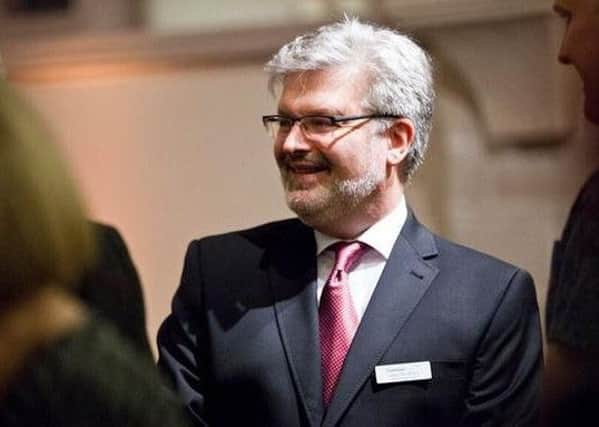Music review: Cumnock Tryst Festival, various venues, Cumnock


Music review: Cumnock Tryst Festival, various venues, Cumnock ****
To those of us familiar with the early days of Peter Maxwell Davies’ St Magnus Festival, or even Britten’s Aldeburgh, there would be a twinge of nostalgia as the amateur Tryst Festival Chorus and local legends the Dalmellington Band took centre stage alongside the professional clout of tenor Ian Bostridge and the Edinburgh Quartet (with double bassist Nikita Naumov) for the world premiere of MacMillan’s All the Hills and Vales Along, a setting of verses by Scots-born Charles Hamilton Sorley, who died in the French battlefields in 1915.
Advertisement
Hide AdThis was a chamber version of a fuller-scaled premiere celebrating the Armistice centenary that will take place in London next month, where the full string section of the London Symphony Orchestra will replace the solo quintet.
What Cumnock witnessed was a gripping, gritty and at times all-action score that played to the strengths of its diverse components: the simple effectiveness and raw intensity of the choral scoring; the sublime halo-like, enveloping presence of the strings (set apart high in the rear gallery); the high-energy virtuosic volatility of the brass band; and the searing projection of Bostridge’s unmistakably unoperatic hybrid tenor voice.
The music, at times beholden to Britten, unfolds with instinctive ease, the mood-defining string chords, the insistent interjection of a military drum, the unison strength of the choir’s opening title track and ferocious Dalmellington battle cry, the tortuous images of the central Sonnet, the grotesque snapping strings of A Hundred Thousand Million Mites, to the anxious hope expressed finally – beyond harrowing musical references by MacMillan to his own The Confession of Isobel Gowdie – in a quiet chord of troubled resolution.
Eamonn Dougan conducted a moving, tight-knit performance. The final movement, which almost breaks into a melody worthy of west end music theatre, will, I suspect, achieve fuller impact with the denser LSO strings.
All this took place within the context of an intriguing Armistice-inspired programme – a mood-setting a cappella rendering of Abide With Me, a frothy, restless new work by young Dalry composer Electra Perivolaris played by Sirocco Winds, Charles Ives’ iconic The Unanswered Question (Rebecca Wilson posing the “question” on solo trumpet), among its unexpected delights.
The previous night found Bostridge with pianist Saskia Giorgini in highly personable and engaging form in songs by Mahler, Brahms, Britten and Rudi Stephan in the diminutive intimacy of New Cumnock Town Hall. Giorgini went solo in the same venue, with a Saturday matinee cocktail of Haydn, George Enescu, Schubert and Liszt. - Ken Walton